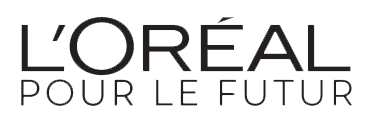B/ Raising awareness among consumers about sustainable lifestyle choices
The Group wants to empower all its consumers to make sustainable consumption choices.
The SPOT environmental and social assessment tool, rolled out to all of the Group’s brands (1) , established the environmental and social profile of all new products in a process dating back to 2017.
Displaying the environmental and social impact of the products
As part of its L’Oréal for the Future programme, the Group has created an environmental and social impact labelling system for its products with environmental ratings ranging from A to E to help consumers make informed consumption choices.
This comparison tool for products within the same category is based on the SPOT methodology to measure impacts, which was developed with 11 independent international experts in accordance with the directives of the European Product Environmental Footprint (PEF), to scientifically measure the environmental and social impact of a product. It takes into consideration 14 planetary impact factors such as greenhouse gas emissions, water stress, ocean acidification or the impact on biodiversity.
These impacts are measured at each step in the life cycle of a product and calculated by taking into account not only the cultivation and extraction of raw materials and the processing and transport of the product, but also the usage phase by the consumer and the recyclability of the packaging.
This information is accessible to consumers on the product pages of our brands’ websites. The first phase of the roll-out began in France with the Garnier haircare category in July2020. The information is now available for four product categories (shampoo, conditioner & mask, face wash, body wash), five international brands (Biotherm, Garnier, La Roche Posay, L’Oréal Paris, Vichy), and in twenty-three European countries, the United States, Canada, Mexico and Indonesia.
At the same time, L’Oréal is committed to a sectoral approach, coming together with its competitors to form the EcoBeautyScore Consortium, which aims at developping a
common environmental labelling system for the entire cosmetics industry. This system is backed by a scientific methodology for measuring environmental impacts in line with the recommendations of the European Commission, similar to the one used by the Group for its environmental labelling initiative. Alongside the other members, L’Oréal is committed to sharing its experience in this field within the Consortium in compliance with anti-trust legislation.
In view of L’Oréal’s active contribution to the development of the EcoBeautyScore, the Group slowed down in 2022 the deployment of its own system for displaying the environmental and social impact of its products. However, in 2023 it will continue to roll it out to new brands and new markets.

In 2022, an environmental impact score was calculated for 83% of the Group’s rinse-off products. Labelling showing these scores, together with their social impact data, will be gradually rolled out in our markets.

Environmental and societal commitment of L’Oréal brands
Conscious of the influencing ability of its brands, L’Oréal encourages them to inform and mobilise their stakeholders around major environmental and societal challenges. Each brand must therefore identify a cause of its own, support a community partner involved in the field and conduct awareness-raising campaigns with the wider public.
In the context of the L’Oréal for the Future programme ,the Group has made a commitment that three million people will benefit from its brands’ social engagement programmes by 2030. In 2022, 22 brands have activated a cause program in partnership with NGOs, leading to a support brought to more than 2,500,000 beneficiaries (2).
| L’Oréal Paris | L’Oréal Paris is backing the Stand Up against street harassment programme in partnership with the NGO Right To Be. In 2022, more than 800,000 people in more than 41 countries learned how to react safely to street harassment. The training, based on the 5D(3) methodology, teaches victims and witnesses of street harassment how to react with outputting themselves in danger. |
|---|---|
| Maybelline | Maybelline has developed the Brave Together initiative to take action against anxiety and depression. The brand supports 35 associations in over 25 countries. These provide access to crisis hotlines and various tools offering personalised support. |
| Yves Saint Laurent Beauté | “Abuse is Not Love” programme aims to fight domestic violence in partnership with local NGOs. The brand launched a training course with a wealth of resources to support victims and those wishing to help people suffering domestic abuse. In 2022, more than 377,242 people benefited from this course. |
| Giorgio Armani | Giorgio Armani is committed to providing regions affected by drought with access to drinking water and sanitation through its Acqua for Life programme. In partnership with UNICEF, Water Aid and Water.org, the brand has invested more than €12 million to provide more than 540,000 people in 21 countries with access to drinking water. |
(1)Excluding recent acquisitions.
(2)Data consolidated based on a statement submitted directly by partner NGOs.
(3) https://www.standup-international.com/fr/fr/our-training/bystander
